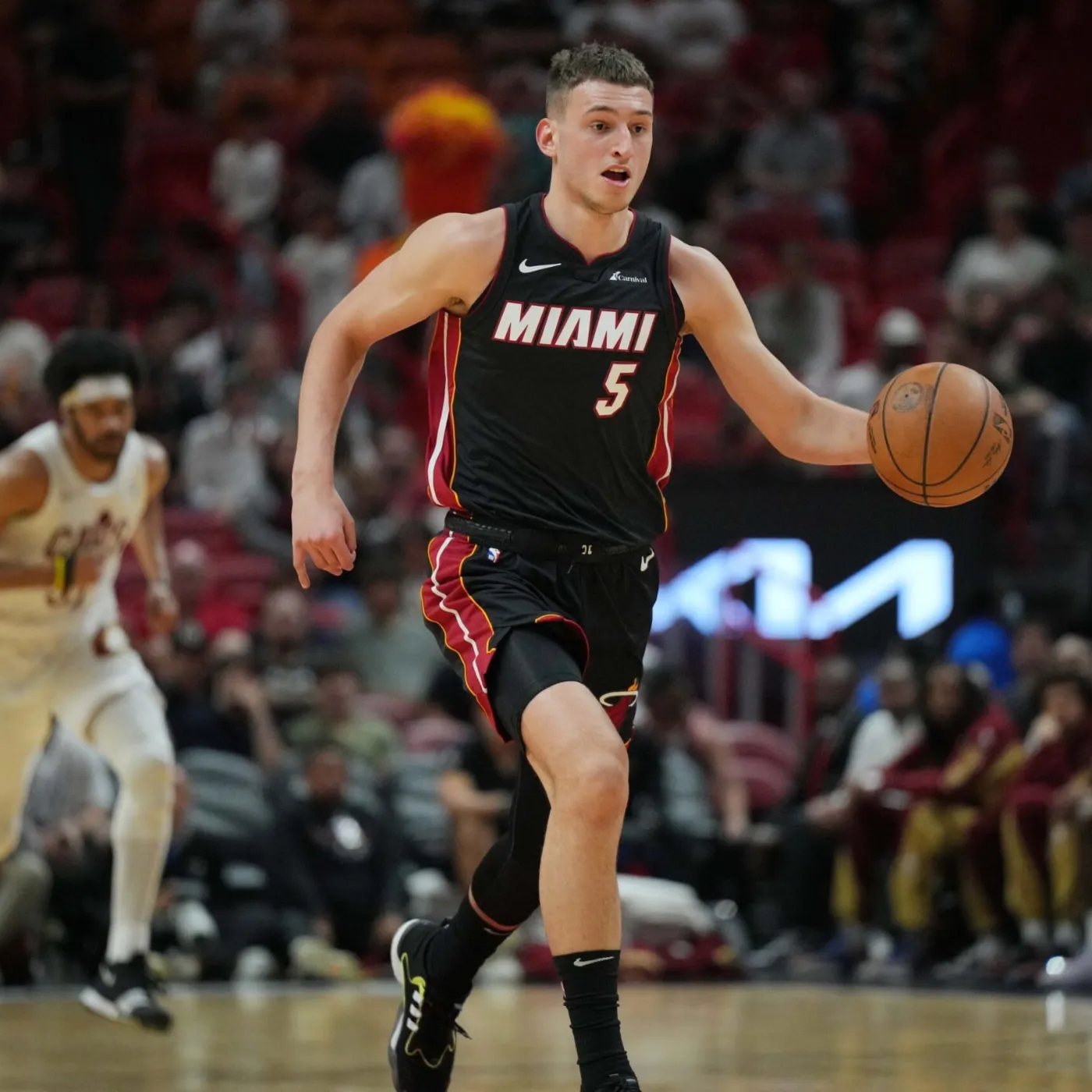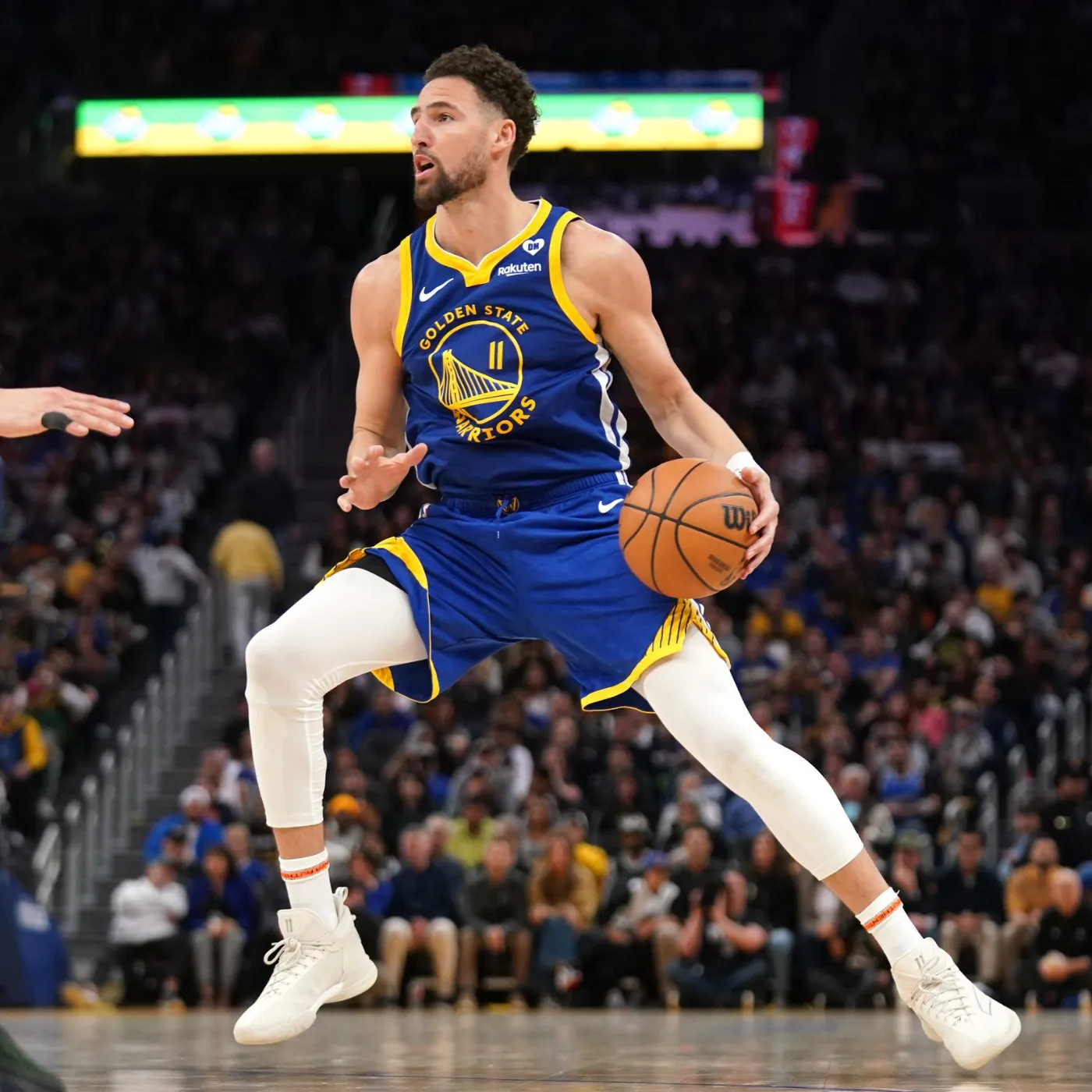
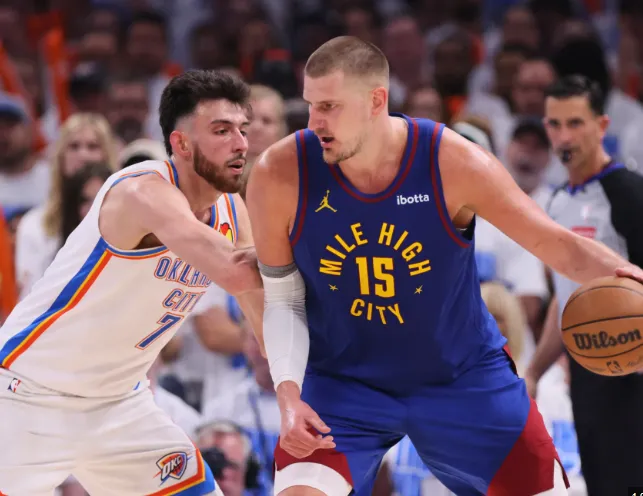
Nikola Jokic shone with 44 points but still lost in the fifth game against the Thunder.
In a night that showcased Nikola Jokic’s brilliance, the Denver Nuggets were unable to capitalize on his historic performance in Game 5 of their Western Conference semifinal matchup against the Oklahoma City Thunder. Jokic poured in 44 points, grabbed 15 rebounds, and dished out 5 assists, yet the Nuggets lost 112-105, falling behind 3-2 in the best-of-seven series.
Jokic’s performance was nothing short of spectacular, with 68% shooting from the field and an incredible 71.4% from three-point range. But as the game wore on, Denver’s defensive lapses and lack of scoring support proved costly. The Thunder, led by Shai Gilgeous-Alexander’s 31 points, stormed back in the fourth quarter to complete the comeback.
Nikola Jokic’s MVP-Level Night
Once again, Nikola Jokic reminded the NBA world why he’s a generational talent. His 44-point outing was one of the most efficient playoff performances in recent memory. He shot 17 of 25 from the field and 5 of 7 from beyond the arc, combining power, finesse, and basketball IQ in a way only Jokic can.
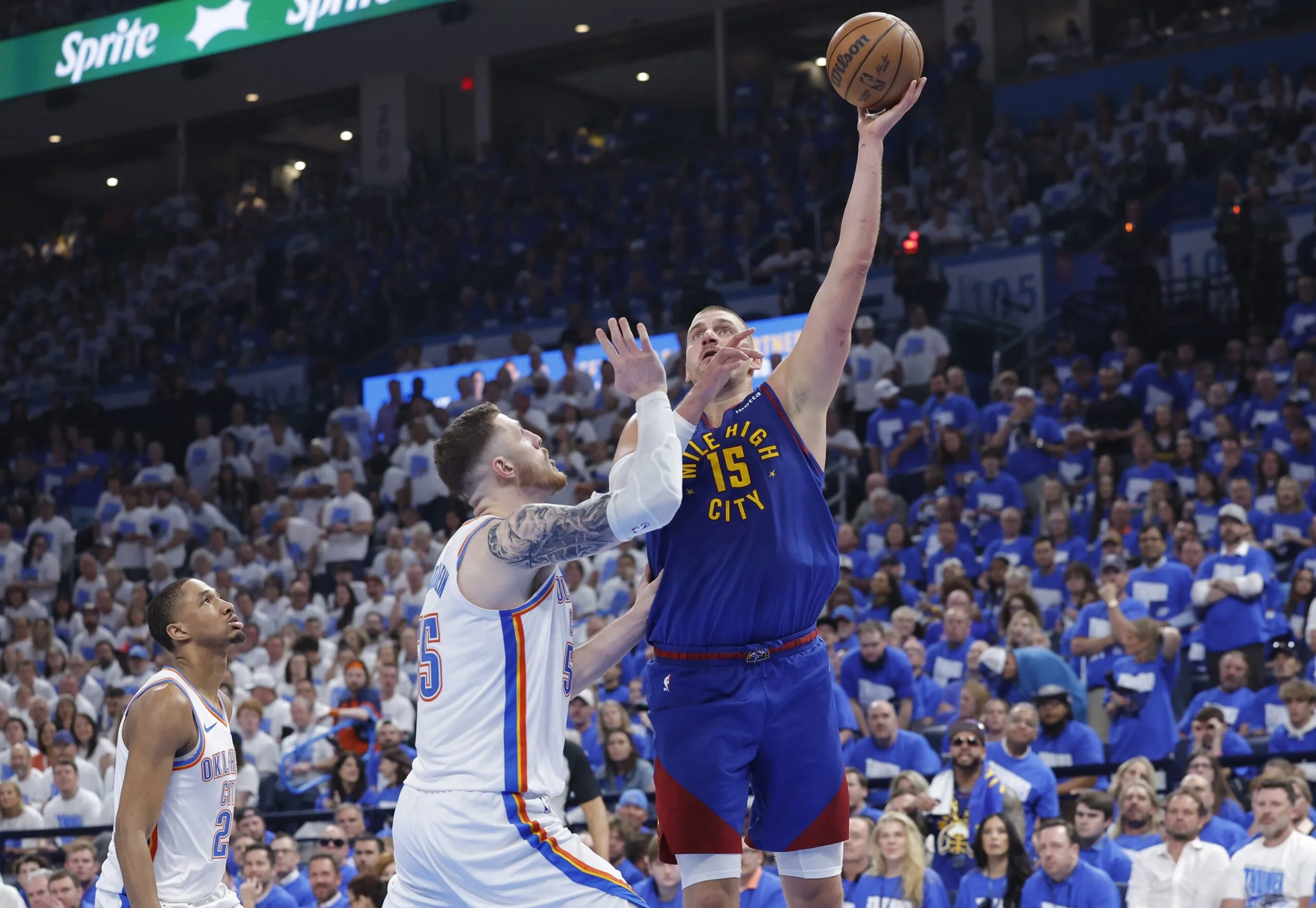
Early in the game, it looked as if Jokic was set to carry the Nuggets to victory. He came out aggressive, scoring 15 points in the first quarter alone. His shot selection was impeccable—floaters, mid-range jumpers, and deep threes all found the bottom of the net. Every time the Thunder threw a double team at him, he responded with precision.
More than just scoring, Jokic continued to impact the game in all facets. His 15 rebounds kept Denver in control of the glass, while his court vision created opportunities that often went unconverted. Despite being the heart and soul of the Nuggets, Jokic’s efforts weren’t enough on their own.
Shai Gilgeous-Alexander Sparks Thunder Comeback
While Jokic was dominant, Shai Gilgeous-Alexander (SGA) played the role of closer for the Thunder. He scored 31 points, many of which came in crucial moments during the second half. SGA repeatedly attacked Denver’s defense, finding success at the rim and from the mid-range.
The Thunder’s resilience was evident. Down by eight points in the fourth quarter, Oklahoma City tightened up defensively and began executing more efficiently on offense. Their ability to slow Jokic’s supporting cast allowed them to chip away at the lead, and they ultimately closed out the game with a decisive 20-7 run.
Beyond SGA, the Thunder received timely contributions from Jalen Williams, Chet Holmgren, and Lu Dort, all of whom hit key shots and made important defensive stops. The depth and balance of the Thunder proved to be the deciding factor in a game dominated by individual brilliance on the Nuggets’ side.
Denver’s Defensive Collapse in the Fourth Quarter
The Nuggets held an eight-point lead early in the fourth quarter but failed to protect it. While Jokic continued to score, Denver’s defense faltered. The Thunder found open shooters, attacked mismatches, and exploited slow rotations.
The collapse was particularly alarming given the stakes. A Game 5 win would have given Denver control of the series, but instead, they now face elimination in Game 6. Defensive lapses on the perimeter and in pick-and-roll coverage allowed Oklahoma City to take control in the final minutes.
Coach Michael Malone acknowledged the defensive issues postgame, stating:
“We just didn’t get the stops we needed. You can’t expect to win giving up 112 points, especially when you’ve got your best player doing everything on the other end.”
Lack of Support for Nikola Jokic
While Jokic delivered a masterpiece, the rest of the Nuggets’ lineup failed to rise to the occasion. Jamal Murray, who has been battling inconsistency throughout the series, shot just 6-of-17 from the field and finished with 16 points. His struggles were especially glaring in the fourth quarter when the team needed a secondary scoring option.
Michael Porter Jr. and Aaron Gordon combined for 21 points, but neither could sustain momentum or match the energy brought by the Thunder’s wings. The bench contributed only 12 points total, a number far too low in a playoff game with such high stakes.
This imbalance has become a recurring issue for Denver in the postseason. When Jokic dominates, but his teammates fail to contribute meaningfully, the team becomes predictable and vulnerable to strategic counters from opponents.
Thunder’s Defensive Scheme Paid Off
The Thunder coaching staff deserves credit for how they managed Jokic in the second half. After being torched early, they adjusted by sending quick double teams from different angles and relying on the help-side defense of Chet Holmgren.
Though Jokic still found ways to score, the increased pressure affected Denver’s spacing and rhythm. Oklahoma City dared the Nuggets’ role players to beat them—and they couldn’t.
The Thunder’s game plan also emphasized transition opportunities. After defensive stops, they pushed the ball up the court quickly, catching Denver off guard multiple times and scoring several easy baskets.
What the Nuggets Must Do for Game 6
With the series shifting back to Oklahoma City, the Nuggets now find themselves in a must-win situation. They’ve already proven they can compete with the Thunder, but adjustments are necessary.
Defensive improvement is the top priority. Denver must contain Shai Gilgeous-Alexander and limit open looks for the Thunder’s supporting cast. That means more aggressive closeouts, better communication on switches, and perhaps changes in defensive assignments.
Offensively, Denver needs more from Jamal Murray and the second unit. Jokic cannot be expected to score 40-plus every night. Murray must find his rhythm early in Game 6, and players like Christian Braun, Reggie Jackson, and Zeke Nnaji must contribute more consistently.
Coach Malone might also consider staggering rotations differently to maximize Jokic’s minutes against the Thunder’s bench units, where he has historically dominated.
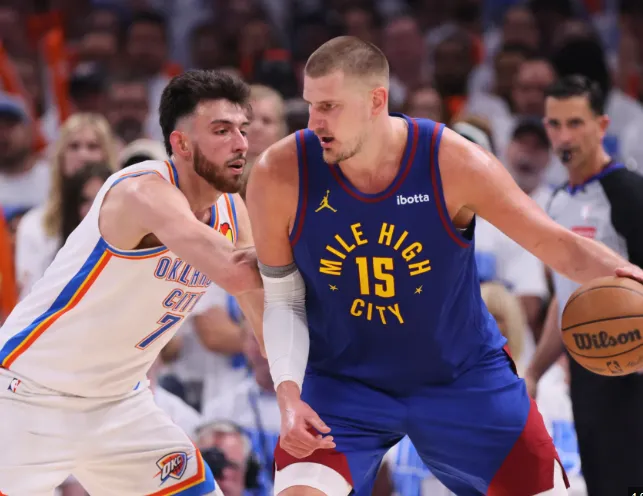
Nikola Jokic: A Playoff Legend in the Making
Regardless of the outcome, Nikola Jokic is adding to his legacy with every postseason appearance. Game 5 was a reminder of how rare and special his skill set is. Few players in NBA history can dominate a playoff game with such efficiency and grace.
His 44-point, 15-rebound, 5-assist stat line is the kind of performance that usually results in victory. That it didn’t is a reflection of Denver’s shortcomings rather than any fault of Jokic’s.
Jokic’s consistency and humility continue to set him apart. After the loss, he simply said,
“I did what I could. Now it’s time to move on to Game 6.”
Can Denver Bounce Back in Game 6?
The Nuggets have shown resilience before. They came back from multiple 3-1 deficits during their 2020 playoff run. With Jokic playing at an MVP level, they are never truly out of a series.
However, the margin for error is now razor-thin. Game 6 will be in a hostile environment in Oklahoma City, and the Thunder will be energized to close the series out at home.
If the Nuggets hope to force a Game 7, it will require not only another big night from Jokic but also a collective defensive stand and a balanced offensive attack. The time for moral victories is over—Denver must execute in all phases of the game.








